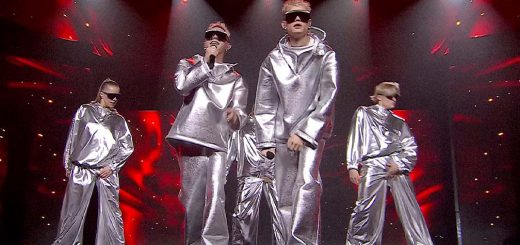Kazakhstan Eyes Eurovision 2026: From Steppe to Semis?

A Diplomatic Waltz at Broadcasting HQ
While most of us were debating whether pineapple belongs on pizza (it doesn’t), Kemelbek Oishybayev—chairman of Kazakhstan’s Khabar Agency—was busy sipping BBC coffee at the European Broadcasting Union’s General Assembly in London. According to his Instagram dispatch, Kazakhstan’s long-nurtured dream of stepping onto the Eurovision stage finally made the meeting agenda. Director-General Noel Curran promised to raise the matter at the next EBU summit—because nothing says “pan-European unity” like scheduling yet another committee session.
The Geography Question (And Why It’s So 2010)
Detractors love to point out that Kazakhstan is closer to Mongolia than to Vienna. Fair enough—but Australia has been belting out power ballads since 2015, and last time we checked, Sydney is roughly a day’s flight from Zürich. Besides, the EBU already lists Khabar as an associate member, which is Eurovision-speak for “You’re invited to the party, but please stay near the snacks until we call your name.”
The Junior Eurovision Track Record—Small Stage, Big Hopes
Kazakhstan has form where it counts: five consecutive appearances at Junior Eurovision (2018-2022), producing two silver medals and one very catchy anthem about fairy worlds. Granted, 2023 saw a strategic retreat—budget pressures, lukewarm ratings, and perhaps a collective need to iron those LED costumes—but the nation’s junior résumé is still shinier than many senior delegations care to admit.
Red Tape, Reference Groups and the Aussie Precedent
For the Kazakhs to graduate to the grown-ups’ table, the Eurovision Reference Group must extend an official invitation. That’s happened precisely once in history—when SBS (Australia) received its golden ticket in 2015. If lightning strikes twice, Kazakhstan could waltz straight into the 2026 semi-finals with a dombra-dubstep fusion nobody saw coming.
What Could a Kazakh Entry Look Like?
Picture soaring vocals over traditional dombyra strings, sprinkled with a dash of Turkic synth-pop and a costume that screams “Genghis meets Glam Rock.” Add a bilingual chorus—Kazakh and English, naturally—and you’ve got a staging pitch that would make even Sweden raise an eyebrow.
Why the EBU Might Say “Da”
- Strategic Outreach – Strengthening cultural ties with Central Asia never hurt anybody (except perhaps the map purists).
- Viewer Curiosity – Fresh blood boosts ratings; we’re all suckers for a debutant story.
- Precedent Comfort – If Australia can survive the time-zone maths, Astana certainly can.
The Road Ahead: Committee Rooms and Caffeine
The proposal now enters that famously opaque EBU pipeline—white papers, Zoom calls and, eventually, an announcement that drops at 11 p.m. CET on a random Tuesday. Until then, Kazakh fans will keep refreshing their feeds and practising key changes in the shower.
Will Kazakhstan finally swap spectator status for centre stage in Eurovision 2026? The answer lies somewhere between Geneva’s meeting minutes and a particularly persuasive PowerPoint. One thing is certain: if the invitation lands, Europe is about to discover that steppe beats can groove just as hard as any Scandinavian synth.
So dust off your globe and start learning how to pronounce “Qazaqstan”—because the next great Eurovision plot twist might be coming from farther east than ever before.
Source: Eurovoix


